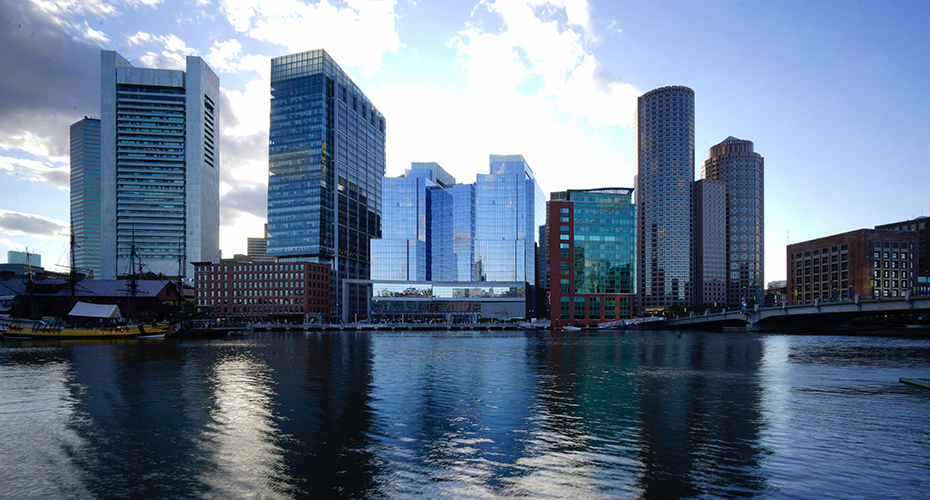Oct 25, 2019
Massachusetts health cost hearing explores roots of rise in spending
Drug costs and hospital costs are contributing to rising health care spending in Massachusetts, according to testimony during the opening day of the state’s annual hearings on health care cost trends this week.
"Costs are rising despite our best efforts to control them,” said Massachusetts Speaker of the House Robert DeLeo, addressing the hearing. “We should acknowledge our successes but recognize where we are failing.’’
Run by the Health Policy Commission, the event provides a report card on Massachusetts’ efforts to rein in costs and a discussion of how the state can do better.
"We are at an inflection point,” said David Seltz, executive director of the Health Policy Commission. “We have restrained the once-skyrocketing growth in health care costs, but significant challenges remain. We need stronger tools.’’
The first day of the two-day hearing featured panels that looked at drug costs and the overall complexity in the system.
“The system can’t stand drug inflation as the population ages,” Seltz said, noting national projections that show drug costs could rise 6% annually for a number of years, said. “Six percent would be untenable. We need something closer to zero.’’
The commission found that spending on health care is rising at a moderate pace in Massachusetts relative to the rest of the U.S., but cost pressures are building in the system and more of the burden is falling on individuals who must dig deeper into their pockets to pay the bills:
Health care spending here rose 3.1 percent from 2017 to 2018, reaching the benchmark target the state set. Hospital spending rose 3.7 percent; pharmacy spending was up 5.8, but only 3.6 percent when rebates are included.
Spending on inpatient hospital care continues to go up even as the number of hospital admissions falls. According to Dr. David Auerbach of the Health Policy Commission, over the past five years spending on inpatient care climbed 11% while volume fell 14%. Put another way, the cost of care per patient rose more than 5% a year, a development Auerbach attributed to higher prices and possibly sicker patients.
Although he did not address hospital prices explicitly, Gov. Charlie Baker said the health care system "rewards providers who offer bigger services that are more technologically advanced rather than primary care and behavioral health.’’ Baker, who spoke at the hearing, said the state needed to redirect more dollars to those two areas, echoing a call he made last week when he introduced sweeping health care legislation.
High prices for certain drugs continue to rankle those footing the bills. Michael Carson, president of Harvard Pilgrim Health Care, said spending on specialty drugs and injectable drugs is rising at a 9.5% and 29% clip, respectively. In his proposed bill, Gov. Baker would mandate more state oversight for drugs that cost more than $50,000 per patient per year. They system of drug pricing, said Health and Human Services Secretary Marylou Sudders, is far too complex, even for insiders like herself. "I find the whole thing to be too opaque,’’ she said.
Consumers are shouldering more of the health care burden, partially due to the increased popularity of high-deductible health plans, defined as those with deductibles greater than $1,350 per person. More than 31% of those with private insurance are enrolled in such plans, up from less than 25% two years ago. "The cost of health care to our employees is rising at an unsustainable rate,’’ said Cheryl Corman, chief human resources officer at Middlesex Savings Bank.
The state’s largest health plan, Blue Cross of Blue Shield of Massachusetts, once again demonstrated strong cost control. Blue Cross saw medical spending rise 1.7% last year, according to preliminary estimates, well below the 3.1% average for the state as a whole. In years past, when final numbers were tallied, the health plan’s outperformance was even stronger. In 2017, for instance, spending at Blue Cross climbed 1.5%, less than half of the 3.6% benchmark.
“We are proud of our record,” said Blue Cross spokeswoman Amy McHugh, “but keenly aware of the work that remains to be done to make quality, affordable health care accessible for our members.”
Overall, health spending in Massachusetts continues to rise more slowly than in the nation as a whole.
The state has long outpaced national standards on health care: A landmark health care reform law was signed in 2006, and today, more than 97 percent of residents have insurance, the highest rate in the nation. The state has some of the country’s most impressive public health rankings on measures of mortality, adult obesity, smoking, suicide rate and infant mortality. And every year since 2010, Massachusetts has outperformed the national average in constraining cost growth.


